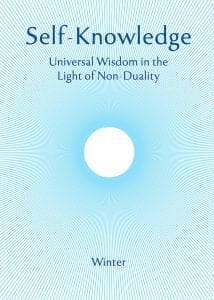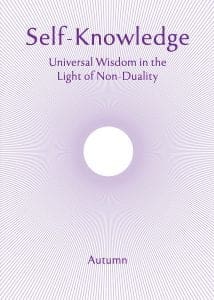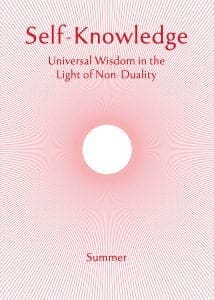Posts Tagged ‘Members’
Direct Experience of Reality
What is the chief concern of the non-dual philosophy? It is to awaken us to a life-experience that brings lasting fulfilment. This greatest gain is not the result of any worldly success or achievement. Rather, it is uncovered in the depth of our own being through developing a particular way of life and of thought.…
Read MoreThe Absolute as the Lord of Maya
From the Shankara Source Book, Volume Two, Shankara on the Creation The usages to which Shankara puts the term ‘Maya’ may be analysed briefly as follows. It is found in certain non-philosophical contexts in the non-technical sense of duplicity or dishonest dealings in the world, but these passages have no relevance to our present enquiry.…
Read MoreSeeing Beyond Differences
The practice of meditation involves both stilling the mind and filling the mind. The two overlap and have the same aim, which is to be free of what seems to separate us from what is most real and fulfilling in ourselves and in all. We find that stilling the mind relieves us of much tension…
Read MoreFinding the Divine Element in Oneself
The ultimate good news for us is to be reminded that we are more than the physical and mental being which we appear to be. If we were to literally dissect the body and the mind of a person, and continue to break it down into its constituent parts, what would we find? The same…
Read MoreThere is a Way to Freedom
The supreme benefit of regular and progressive meditation is that it brings to light an element of perfect freedom in our own being. This has been compared to the forming of an opening in our mind, through which the light and peace which are normally hidden in the depths of our being, may pass into…
Read MoreThe Ascent of the Mind
Notes of a lecture given by Hari Prasad Shastri Our aim is the ascension of the mind from its present state of alternation between turpitude, passion-struggle and equilibrium, into the higher state of illumination. The word ascension has no spatial connotation; it just means lifting the mind from one state to another. It is a…
Read MoreHow Can Self and Not-Self Be Connected?
The Thousand Teachings of Shankara, Prose Part, Section Two In the Thousand Teachings of Shankara we find a dialogue between a student and a knower of Truth. The student has thought carefully about the non-dual teachings and come across points which seem to him contradictory or even incomprehensible, and so he approaches the teacher with…
Read MoreHafiz and Mysticism
The poet Hafiz was probably born between 1320 and 1326 in Shiraz in southern Iran, and died there in 1389. Although much studied and analysed, little more is known about him with certainty. He remains almost totally hidden behind his work. [His poems were collected into the ‘Diwan (anthology) of Hafiz’. The numbers in what…
Read MoreNicholas of Cusa
Nicholas of Cusa (1401-1464) was born in Kues (Cusa) in south-western Germany, and rose as an administrator, bishop and cardinal of the Roman Catholic Church, as well as being a prolific writer, whose turn of thought and philosophical speculations remain of relevance to students of the non-dual teachings. The present article will focus on some…
Read MoreThe Non-Duality of Shri Shankara
Concluding our series of extracts from H P Shastri’s essay on the Outline of the Advaita of Shri Shankara Release (Moksha) According to the Advaita Vedanta of Shri Shankara, release (Moksha) is eternally true. By spiritual practices it is realised in our practical experience. Before an aspirant treads the path of Yoga he must cultivate…
Read More



